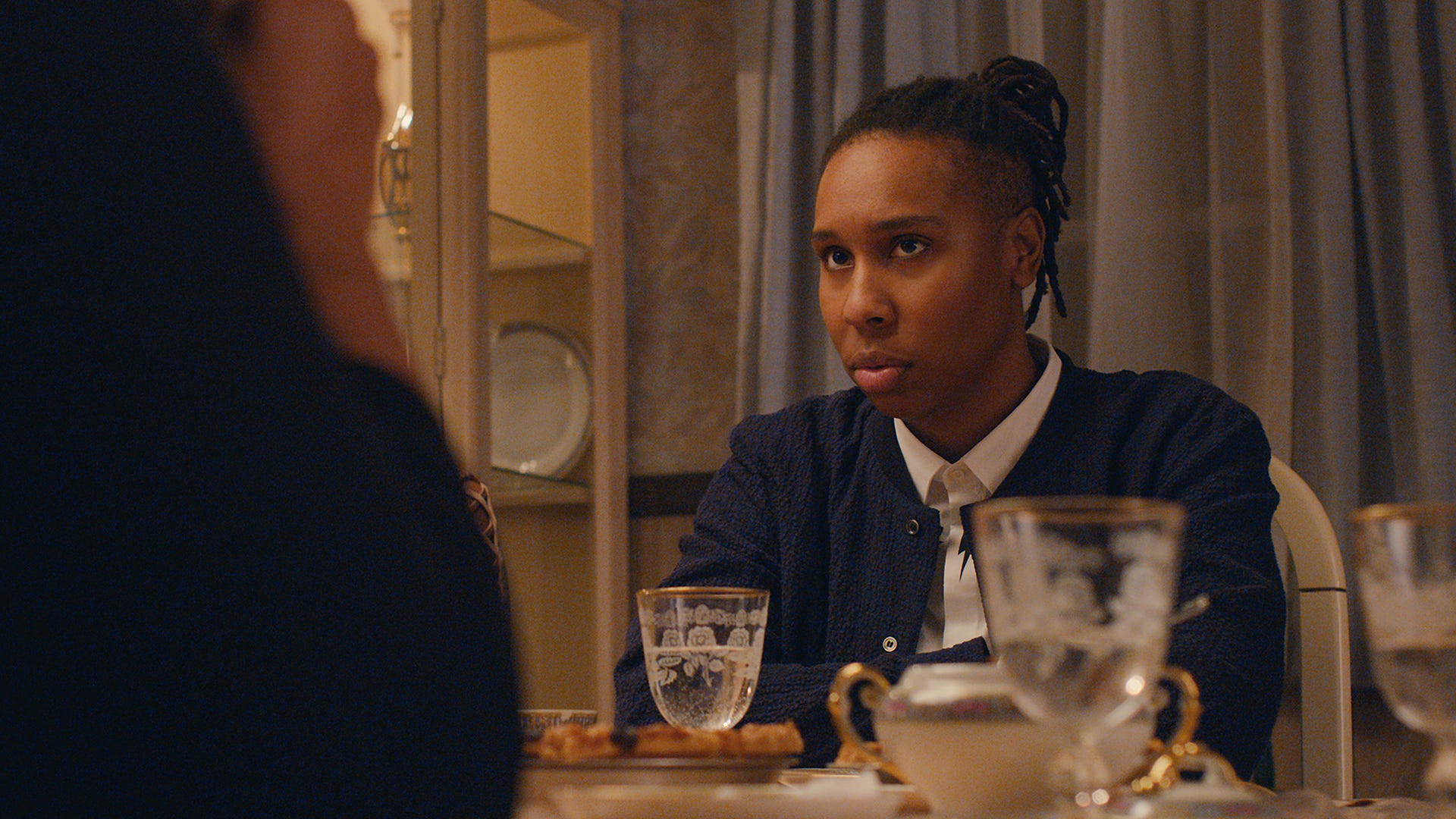Join or Sign In
Sign in to customize your TV listings
By joining TV Guide, you agree to our Terms of Use and acknowledge the data practices in our Privacy Policy.
Master of None's Lena Waithe on Her Historic Emmy Nomination and How to Push Representation Forward
Let Waithe's wise words soothe your soul
Lena Waithe, star and writer for Netflix's Master of None, made history when she was nominated for an Emmy for writing the "Thanksgiving" episode of the series. But it's the kind of history that makes everyone look back and think, "Wait, this can't be right, are we really that behind the times?"
Waithe's nomination made her the first African-American woman to be nominated for a comedy writing Emmy award... ever. It's a stat that was so esoteric -- yet so important and unfortunately ignored -- that even Waithe didn't know she had made history.
"I didn't know I was the first black woman [to be nominated] until people were saying that and saying it to me and I was like, 'Is that true?,'" Waithe said on the Lesbian Gay and Bisexual Trend on TV panel at the Television Critics Association summer press tour sponsored by GLAAD. "The first woman of color was Mindy Kaling, I think that was for an episode of The Office she wrote. And I'm the first African-American woman. And to be in 2017, it speaks to where we are in terms of, I think we're making progress in our industry, but I think what this says to me is we still have a lot of work to do. And I'm fighting to make sure it happens."

Lena Waithe, Master of None
Waithe said she's very into mentorship and that the only way to make things better for both African-Americans and gay and lesbians in the industry is to actively promote and foster greatness in young writers, not just talk about it. "It's like you have to be great to get in there," Waithe said. "I'm still striving for greatness. But I think people of color have to have some guidance and mentorship to help them get to that place. Otherwise, they don't get in the room or they get in the room and they fail, and that's problematic."
During the discussion, Waithe also went deeper into how the episode -- in which her own story of coming out to her mother was dramatized -- came about, and the lasting effect it's had on her.
"I just wanted to act on Master of None and then write things for my own," Waithe said. "[Master of None creator] Aziz [Ansari], to his credit, was like, 'I can't tell your story, I need your help to tell it. ... Because it literally is the blackest piece of television I've ever [seen]. It's very black, it's very female, it's really gay and [Ansari, co-creator Alan Yang and Netflix] didn't shy away from it. But the cool thing about that is that so many people love it and I'm like, that's amazing. White people like it! Straight white people have come up to me saying they like it and to me, that's progress. When straight white guys tell me it was their favorite episode, that's when art is doing its job, when he can look at my character and go, 'I can see myself in her.' Because I want to be specific. I'm going to be really black, I'm always going to be very gay, and so that's what I enjoy. But I want them to see themselves in me even though they may not walk in the world in the way that I do."
Master of None's "Thanksgiving" Is TV's Best Coming-Out Episode to Date
Part of that relatability comes from the way Waithe's character Denise is portrayed: as an actual human being as opposed to a caricature, which is something Waithe doesn't always see with gay and lesbian characters.
"What I don't like is when gay characters are used as props," she explained. "We're not furniture, we're not there to jazz things up."
She continued, "I think for our community, when you get to show [gay and lesbian characters and storylines on TV], show it with the same love and respect that you would a straight love storyline. Or also, make it just as dysfunctional or just as crazy because all lesbian couples or gay couples aren't perfect. But make them human. I think that's the issue: when you treat them like they're other. You've got to treat them like everybody else."
Master of None is now streaming on Netflix.
